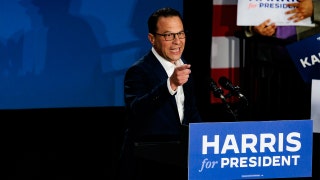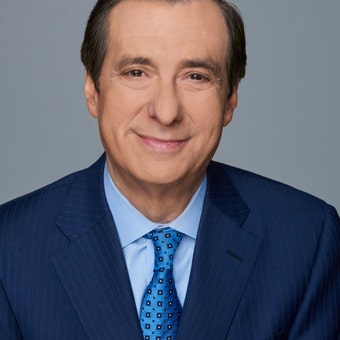Biden is losing: Howard Kurtz
'Special Report' panel reacts to countries turning to restarting coal plants while the Democrats push for green energy policies on 'Special Report.'
The House committee made a strong case yesterday that President Trump pressured top Justice Department officials to find one rationale after another to declare the 2020 election corrupt.
Unfortunately, we’ve heard most of it before.
The Jan. 6 panel had scooped itself earlier by playing taped depositions of the same former DOJ officials who were the featured witnesses. Anyone who’s been following it knows the gist of what happened, and why the effort failed.
That doesn’t detract from the gravity of a president blatantly pushing the nation’s top law-enforcement officials to act improperly after finding no significant fraud in the election.
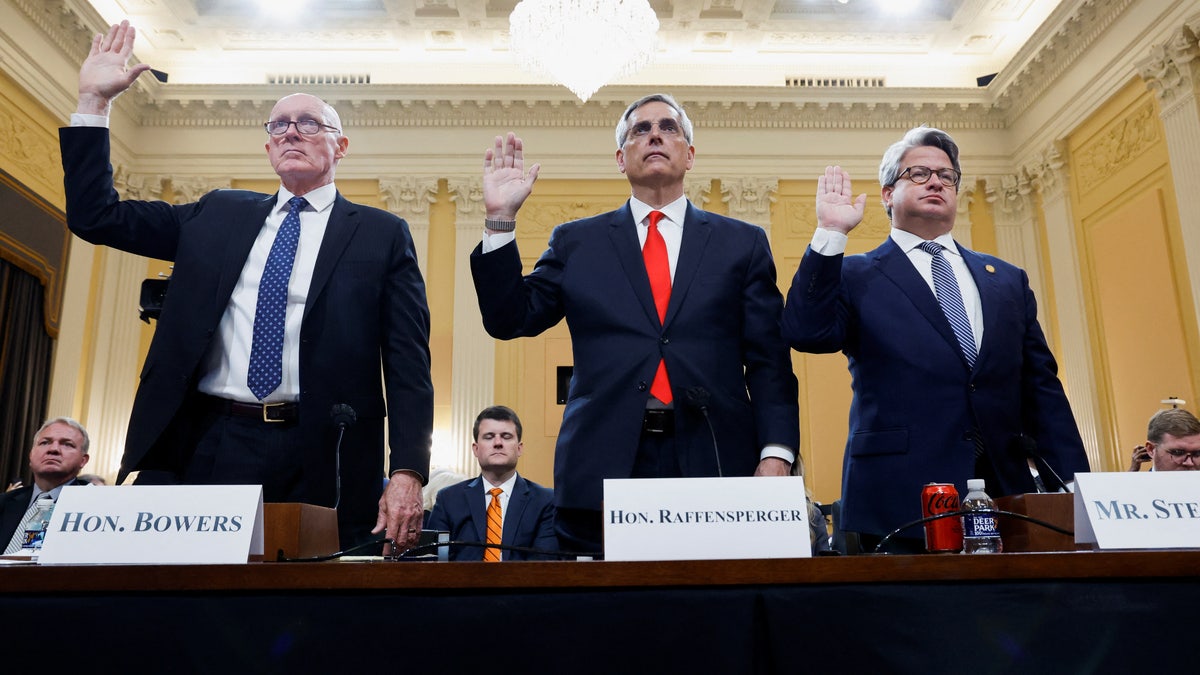
Arizona House Speaker Rusty Bowers, Georgia Secretary of State Brad Raffensperger and Georgia Secretary of State Chief Operating Officer Gabriel Sterling are sworn in to testify to the fourth of eight planned public hearings of the U.S. House Select Committee to investigate the January 6 Attack on the U.S. Capitol, on Capitol Hill in Washington, U.S. June 21, 2022. REUTERS/Jonathan Ernst. The House committee made a strong case yesterday that President Trump pressured top Justice Department officials to find one rationale after another to declare the 2020 election corrupt. (REUTERS/Jonathan Ernst)
HOW POWERFUL TESTIMONY FROM STATE REPUBLICANS HIGHLIGHTED TRUMP PRESSURE CAMPAIGN
But unlike Tuesday’s dramatic hearing with Republican state officials saying Trump and Rudy Giuliani repeatedly pressed them to violate their oath of office, this one felt like a rehash. There was a lot of low-key lawyer talk. And that matters because the goal of the Democratic-controlled committee has been to put on a television show that would convince casual viewers of the former president’s guilt.
We had even seen the handwritten notes of acting Deputy Attorney General Richard Donoghue, describing the key events, and yesterday they were flashed on the screen again.
And we knew that Trump wanted to replace the Acting Attorney General, Jeffrey Rosen, with a DOJ lawyer who would do his bidding, Jeffrey Clark, but ultimately backed down.
What was striking, according to Donoghue’s testimony, was how many arguments about fraud the president threw out, only to move on to another rationale as DOJ knocked down each one.
Trump suggested that department officials name a special counsel for election fraud, meet with Giuliani, file a Supreme Court lawsuit, hold a press conference, or send a letter to Georgia and other states demanding a special session on replacing electors, Donoghue said.
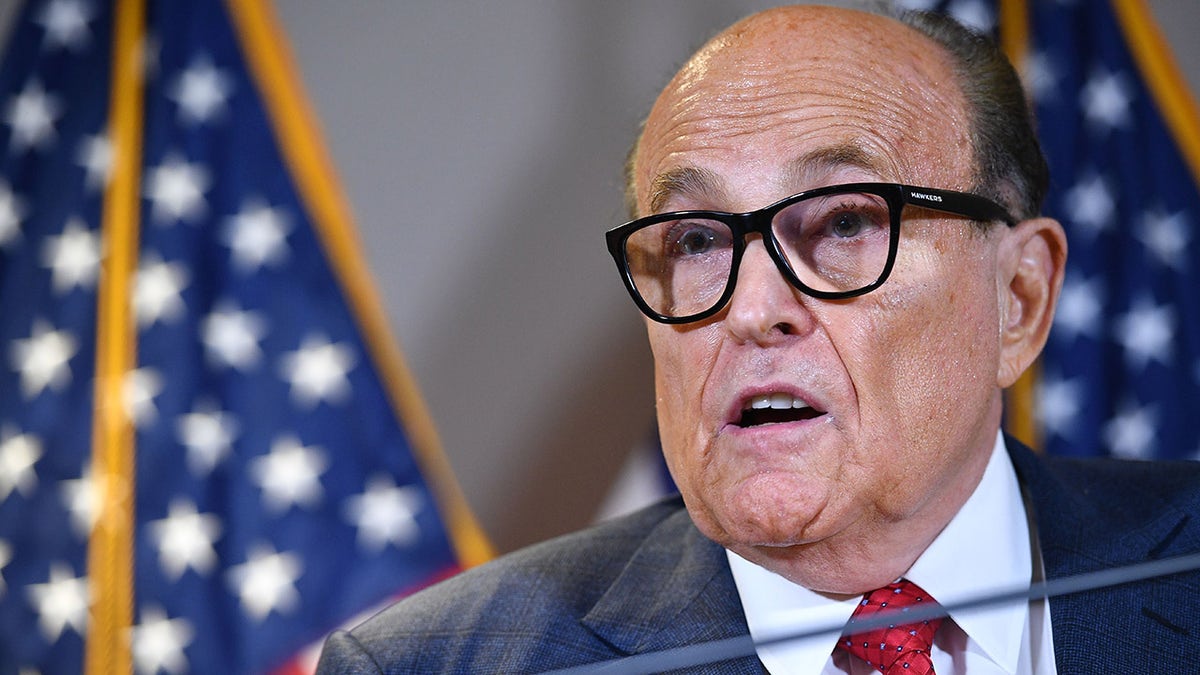
Trump's personal lawyer Rudy Giuliani speaks during a press conference at the Republican National Committee headquarters in Washington, DC, on November 19, 2020. Unlike Tuesday’s dramatic hearing with Republican state officials saying Trump and Rudy Giuliani repeatedly pressed them to violate their oath of office, this one felt like a rehash. (Photo by MANDEL NGAN/AFP via Getty Images)
"He became more adamant that we weren’t doing our job," Donoghue said.
Trump asked about reports of a high error rate in Antrim County, Michigan; the officials told him a hand recount had found a single mistake.
They also told Trump that a report that a truck driver had moved a tractor-trailer’s worth of ballots was false.
And the officials knocked down still another allegation, telling the president that reports that more than 200,000 votes in Pennsylvania were not actually cast were untrue, Donoghue said.
Then came the handwritten note reflecting Trump’s eye-opening demand: "Just say the election was corrupt and leave the rest to me and the R. congressmen."
But that was literally reported by the media last July, almost a year ago.
While MSNBC’s Nicolle Wallace described the accounts as "bombshells," most of them had already exploded.
Later in the hearing, Rosen, the acting AG, said they had no reason or legal authority to act on another Trump suggestion: "Why don’t you guys seize machines?"
There was even a conspiracy theory, passed on by Trump chief of staff Mark Meadows, that an Italian contractor uploaded software that switched votes from Trump to Joe Biden. Donoghue called that "pure insanity" and "patently absurd."
The final act of the play: An "agitated" Trump told Rosen and Donoghue that "people tell me I should just get rid of both of you."
On Jan. 3, Clark told Rosen that Trump had offered him his job, that of acting attorney general. Clark said he would turn down the offer if Rosen would sign the letter calling for a Georgia special session. "There was no way we were going to sign that letter," Rosen said.
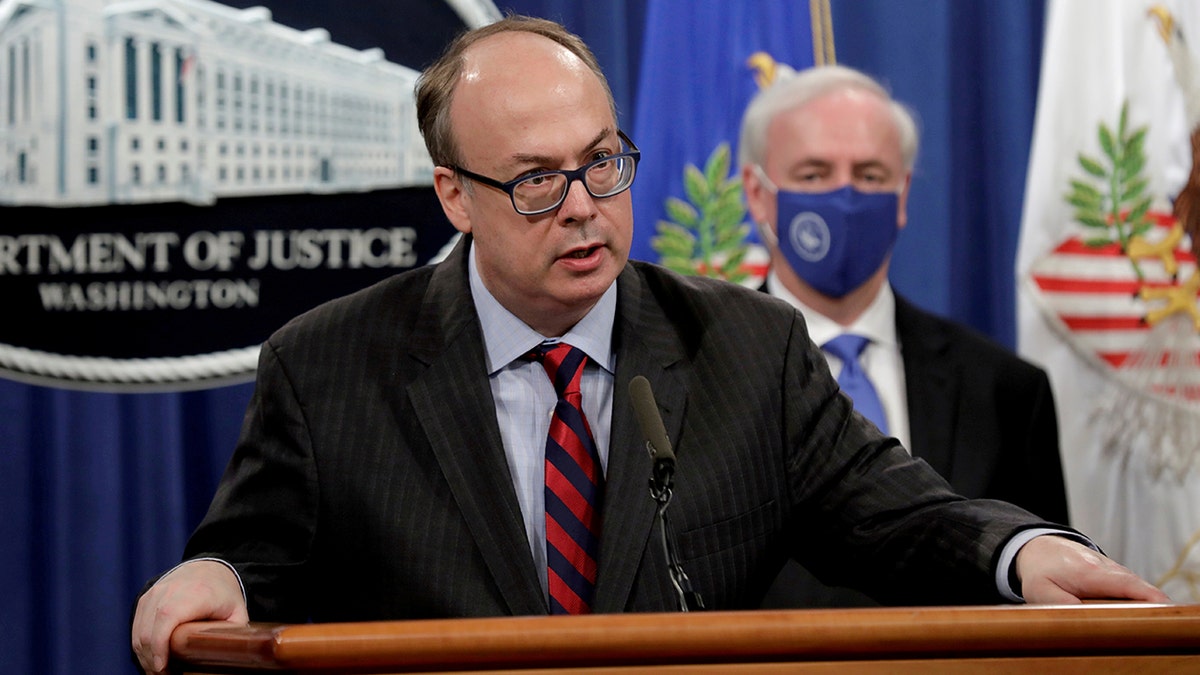
Then-Acting Assistant U.S. Attorney General Jeffrey Clark speaks next to Deputy U.S. Attorney General Jeffrey Rosen at a news conference at the Justice Department in Washington, Oct. 21, 2020. On Jan. 3, Clark told Rosen that Trump had offered him his job, that of acting attorney general. Clark said he would turn down the offer if Rosen would sign the letter calling for a Georgia special session. "There was no way we were going to sign that letter," Rosen said. (REUTERS/Yuri Gripas/File Photo)
MEDIA ISSUE RED FLAGS ON A TRUMP PROSECUTION AS MOST DEMOCRATS BACK CHARGES
In an Oval Office meeting that night, when Trump said "what do I have to lose?", Donoghue slammed Clark for having no criminal experience. "Mr. President, I would resign immediately. I’m not working one minute for this guy," Donoghue recalled telling him.
An assistant attorney general, Stephen Engel, told Trump that "you’re going to lose your entire department leadership…Hundreds and hundreds of resignations. What’s that going to say about you?" White House counsel Pat Cippilone called the Georgia letter "a murder-suicide pact."
Trump backed down from his plan to fire Jeff Rosen.
SUBSCRIBE TO HOWIE'S MEDIA BUZZMETER PODCAST, A RIFF ON THE DAY'S HOTTEST STORIES
That would make a great movie scene–but again, we’ve seen the flick. The essence of that showdown was reported by the media in late January of 2021.
(There was also testimony that several Republican members of Congress, including Louie Goehmert and Matt Gaetz, had asked for presidential pardons, but these were not granted.)
There was one dramatic disclosure yesterday, but it took place outside the hearing room. Justice Department investigators went to the home of Jeffrey Clark, the man Trump wanted to put in charge, the day before and searched for documents.
CLICK HERE TO GET THE FOX NEWS APP
As a former Justice Department reporter, I don’t want to minimize what Trump did. Had a Democratic president taken the same steps in an election he disputed, there would be howls of outrage from Republicans, and rightly so.
But it wasn’t new news.









